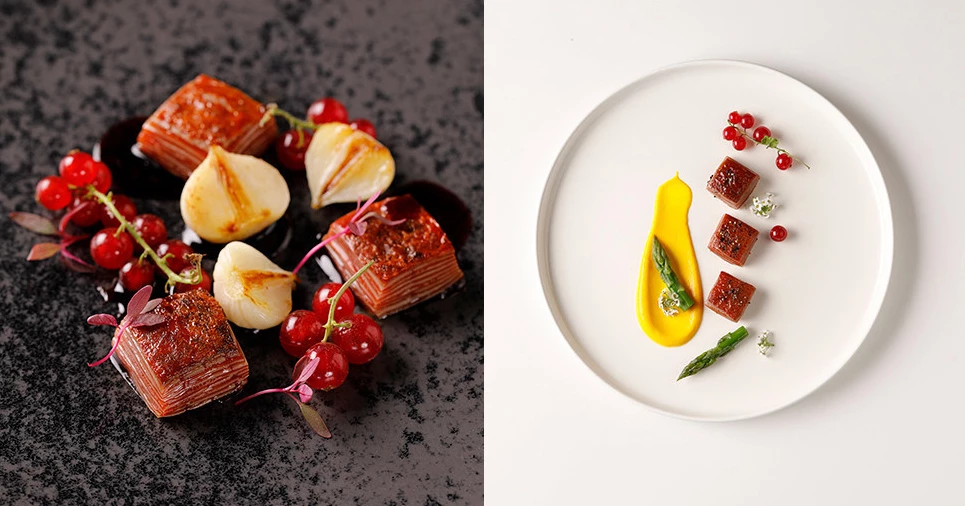Although Wagyu beef is renowned for its richly marbled taste and texture, it does still come from slaughtered cattle – a fact that doesn't sit well with many people. Steakholder Foods is developing an alternative, though, in the form of its 3D-printed Omakase Beef Morsels.
When we last heard from Steakholder, the Israeli company was known as MeaTech 3D, and it had just created a one-off "cultivated steak." The 3.67-oz (104-g) slab of bioprinted meat was made from a blend of lab-grown beef muscle and fat cells, which were derived from bovine stem cells.
Omakase Beef Morsels are likewise made from such cells, but instead of being "swirled" together, they're printed in alternating layers of muscle- and fat-cell bio-inks. By tweaking the thickness, pattern and ratio of those layers, the juiciness, marbling and nutritional content of the morsels can be adjusted as desired.
In fact, the company claims that it's possible to exceed the marbling requirements for natural Wagyu beef. Additionally, those standards can be consistently maintained throughout each production run. What's more, although the finished product currently takes the form of small cubes, it could reportedly be printed in any size or shape.

A PR representative has told us that Omakase Beef Morsels are not yet commercially available, but that once production costs are brought down, Steakholder hopes to sell them at a price comparable to that of conventional meat. Tasting events are planned to take place later this year.
"This product marks a major breakthrough for us and for the cultured meat sector in general," said CEO Arik Kaufman. "It is the result of a lot of hard work and our desire to attain the highest standard of meat possible through bioprinting and cell cultivation processes."
It's actually possible that the morsels may face some competition when and if they reach the market, as scientists at Japan's Osaka University have also recently created lab-grown Wagyu beef.
Source: Steakholder Foods




